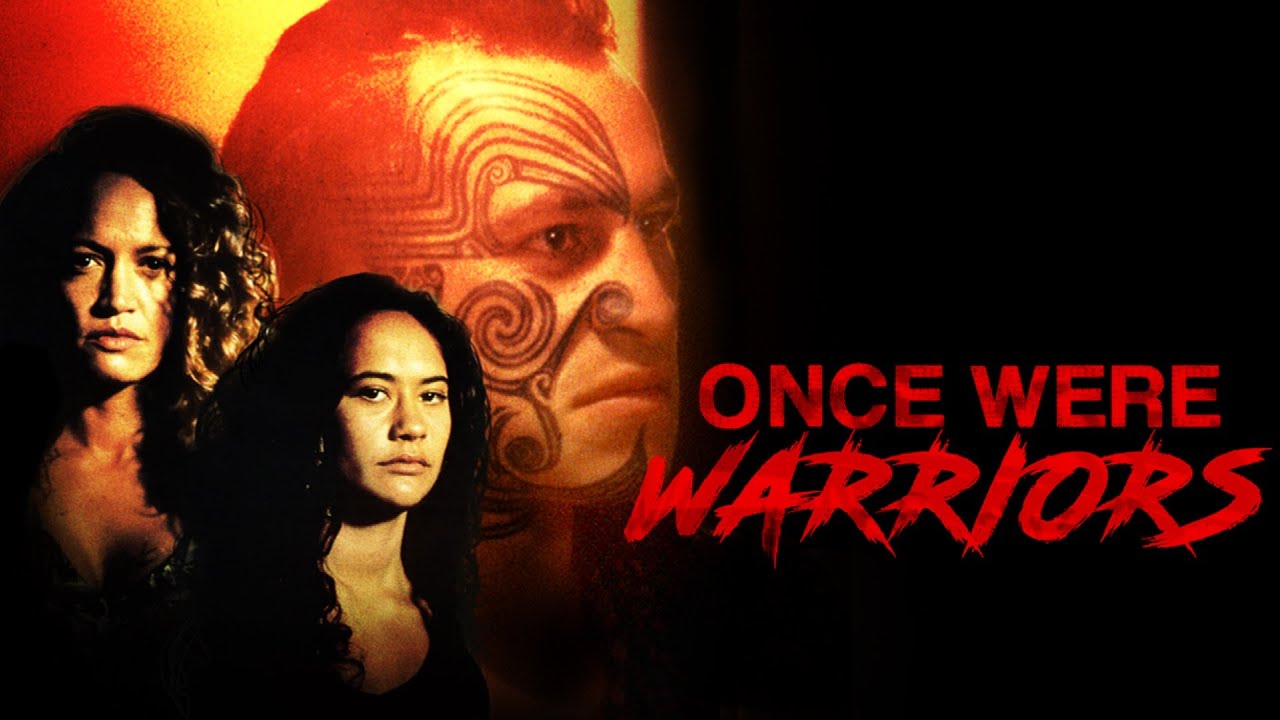
“Once Were Warriors” is a powerful and impactful movie that left an indelible mark on the cinematic landscape. Released in 1994, this New Zealand drama directed by Lee Tamahori delves deep into the lives of the Heke family living in a Maori community. The film garnered critical acclaim for its raw and unflinching portrayal of the challenges faced by indigenous communities and the pervasive issue of domestic violence. With its stellar performances, authentic cultural depiction, and thought-provoking narrative, “Once Were Warriors” continues to resonate with audiences worldwide. In this article, we will explore 47 fascinating facts about this remarkable film, ranging from behind-the-scenes trivia to its cultural impact and legacy. So, buckle up as we dive into the captivating world of “Once Were Warriors.
Key Takeaways:
- “Once Were Warriors” is a powerful New Zealand film that sheds light on the struggles of a M?ori family, sparking important discussions about domestic violence and cultural representation.
- The movie’s impact extends beyond the screen, inspiring social change and promoting cultural understanding, making it a true cinematic masterpiece with a lasting legacy.
Once Were Warriors is a 1994 New Zealand drama film.
Directed by Lee Tamahori, the film is based on the novel of the same name by Alan Duff.
The movie depicts the struggles of a contemporary M?ori family living in urban New Zealand.
It offers a raw and honest portrayal of the challenges they face, including domestic violence and poverty.
Once Were Warriors was a breakthrough film for M?ori cinema.
It gained international recognition and brought attention to the rich cultural heritage of the M?ori community.
The film explores themes of identity, cultural disconnection, and the impact of colonization.
It delves into the complexities of M?ori life and the effects of systemic issues on their communities.
Once Were Warriors was praised for its realistic depiction of domestic violence.
The film sparked important discussions about this issue and shed light on the struggles faced by many families.
The role of Beth Heke, the film’s female protagonist, was played by Rena Owen.
Owen’s powerful performance brought depth and emotion to the character, earning her widespread acclaim.
Jake “the Muss” Heke, Beth’s husband and the film’s central antagonist, was played by Temuera Morrison.
Morrison’s portrayal of Jake showcased the complex layers of the character, making him both terrifying and vulnerable.
Once Were Warriors received critical acclaim upon its release.
It was praised for its groundbreaking storytelling and fearless exploration of important social issues.
The film was a commercial success in New Zealand.
It became the highest-grossing film of 1994 and earned a place in the country’s cinematic history.
Once Were Warriors has a powerful and memorable soundtrack.
The score, composed by Murray Grindlay, features a mix of traditional M?ori music and contemporary sounds.
The film’s title, “Once Were Warriors,” is taken from a line in a traditional M?ori song.
It symbolizes the loss of M?ori pride and the struggle to regain their warrior spirit in modern society.
Once Were Warriors has been praised for its authentic portrayal of M?ori language and culture.
The film incorporates M?ori customs, traditions, and language throughout, adding to its cultural significance.
The movie showcases the importance of community and the support networks within it.
It highlights the strength and resilience of the M?ori community, even in the face of adversity.
Once Were Warriors sparked a renewed interest in M?ori storytelling in the film industry.
It opened doors for more diverse narratives and increased representation of M?ori voices on the big screen.
The film’s success led to a sequel titled “What Becomes of the Broken Hearted?” released in 1999.
The sequel continued to explore the lives of the Heke family and their ongoing struggles.
Once Were Warriors was nominated for several awards, including Best Film at the New Zealand Film and Television Awards.
It won multiple awards, including Best Actress for Rena Owen and Best Director for Lee Tamahori.
The movie’s powerful and emotional storyline resonated with audiences around the world.
It continues to be regarded as a must-watch film for its thought-provoking themes and gripping performances.
Once Were Warriors has been studied and analyzed in academia for its cultural and social significance.
The film offers valuable insights into the challenges faced by marginalized communities and the importance of representation.
Some scenes in the movie are incredibly intense and can be difficult to watch.
Once Were Warriors doesn’t shy away from depicting the harsh realities of domestic violence and its impact on families.
The film’s portrayal of Beth’s strength and resilience has made her a feminist icon.
Her character represents the courage and determination of women in the face of adversity.
Once Were Warriors is often referred to as a landmark film in New Zealand cinema.
It paved the way for future M?ori filmmakers and pushed boundaries in storytelling.
The movie’s success launched the careers of both Rena Owen and Temuera Morrison.
They went on to have successful acting careers in both New Zealand and Hollywood.
Once Were Warriors was adapted into a stage play in 2018.
The play, directed by Jim Moriarty, received critical acclaim for its powerful performances and emotional impact.
The film’s impact on New Zealand society cannot be overstated.
It raised awareness about domestic violence and prompted discussions about the importance of addressing these issues.
Once Were Warriors remains a cult classic and continues to be celebrated by audiences worldwide.
Its enduring popularity is a testament to its powerful storytelling and lasting impact.
The movie’s release sparked a nationwide debate about the portrayal of M?ori culture on screen.
It highlighted the need for more diverse narratives and authentic representation in the film industry.
Once Were Warriors was also praised for its cinematography and striking visuals.
The film beautifully captures the urban landscape of New Zealand and its contrasting elements.
The movie’s script was adapted by Riwia Brown and directed by Lee Tamahori with great care and attention to detail.
The dialogue and character development create a compelling and immersive viewing experience.
Once Were Warriors tackles important sociopolitical issues facing indigenous communities worldwide.
Its universal message of resilience and the fight against cultural oppression resonates with audiences globally.
The film’s success prompted an increased interest in M?ori literature.
Alan Duff’s novel, on which the film is based, gained popularity and became a bestseller.
Once Were Warriors sparked a national dialogue about the relationship between indigenous communities and the government.
It highlighted the need for greater support and engagement with these communities to address systemic issues.
The movie’s raw and unflinching portrayal of poverty ignited conversations about socioeconomic inequality in New Zealand.
It shed light on the challenges faced by marginalized communities and the urgent need for change.
Once Were Warriors features a talented ensemble cast, with exceptional performances from supporting actors.
Every character plays a crucial role in the story, adding depth and complexity to the narrative.
The film’s success inspired a new wave of M?ori filmmakers and storytellers.
It empowered marginalized communities to share their stories and reclaim their narratives.
Once Were Warriors is a powerful example of the transformative potential of cinema.
It has the ability to challenge societal norms, provoke discussion, and promote empathy and understanding.
The movie’s release revitalized the New Zealand film industry.
It showcased the talent and creativity within the country, leading to increased investment in local productions.
Once Were Warriors remains a significant cultural touchstone in New Zealand.
It serves as a reminder of the country’s diverse heritage and the challenges faced by its indigenous communities.
The film’s popularity led to international screenings and recognition.
It helped put New Zealand cinema on the map and opened doors for other Kiwi filmmakers.
Once Were Warriors was praised for its authentic portrayal of M?ori family dynamics.
The interactions between characters reflect the complexities of familial relationships and the impact of societal pressures.
The movie’s release sparked a resurgence in M?ori language learning.
It encouraged a renewed interest in preserving the M?ori language and cultural traditions.
Once Were Warriors has been featured in numerous film festivals around the world.
Its universal themes and powerful storytelling have resonated with audiences from diverse backgrounds.
The film’s success led to increased funding for M?ori cultural initiatives and storytelling projects.
It demonstrated the importance of investing in diverse voices and recognizing the value of indigenous stories.
Once Were Warriors is a testament to the power of film as a tool for social change.
It continues to inspire and challenge audiences, opening up conversations about important social issues.
The movie’s impactful portrayal of M?ori culture has helped promote cultural understanding and appreciation.
It has encouraged viewers to learn more about the M?ori community and their rich heritage.
Once Were Warriors remains an important part of New Zealand’s cinematic history.
It serves as a reminder of the resilience and strength of marginalized communities and their fight for equality.
The film’s legacy extends beyond the screen.
It has inspired grassroots initiatives and organizations working to address social issues faced by indigenous communities.
Once Were Warriors continues to be a powerful and relevant film, transcending cultural and geographic boundaries.
Its impact on cinema and society is undeniable, making it a true cinematic masterpiece.
Conclusion
The movie Once Were Warriors is a powerful and thought-provoking film that delves into the harsh reality of poverty, violence, familial bonds, and the struggle for identity. With its raw and intense portrayal of the lives of the Heke family, the film leaves a lasting impact on its viewers.
Through exceptional performances, a compelling story, and realistic depiction of social issues, Once Were Warriors has earned its place as a significant piece of cinematic history. It serves as a reminder of the importance of love, resilience, and the fight against societal pressures.
Whether you watch it for its poignant storytelling or its captivating performances, Once Were Warriors will leave you contemplating the challenges faced by individuals and families in their quest for a better life.
FAQs
Q: Is Once Were Warriors based on a true story?
A: While the movie takes inspiration from the novel of the same name by Alan Duff, it is not based on a specific true story. However, the issues portrayed in the film are prevalent in many societies.
Q: Is Once Were Warriors a violent movie?
A: Yes, Once Were Warriors does contain scenes of violence which accurately represent the themes of the film. These scenes are aimed at highlighting the social issues and the impact of violence on the characters’ lives.
Q: What is the significance of the title “Once Were Warriors”?
A: The title “Once Were Warriors” refers to the theme of the movie, which explores the idea that the characters were once proud and strong warriors but have been reduced to their current state due to societal circumstances and personal struggles.
Q: Who directed Once Were Warriors?
A: Once Were Warriors was directed by Lee Tamahori, a New Zealand filmmaker. His direction played a crucial role in bringing the story to life and capturing the raw emotions portrayed by the cast.
Q: What awards did Once Were Warriors win?
A: Once Were Warriors received critical acclaim and won several awards, including Best Film and Best Director at the New Zealand Film and TV Awards. It also gained recognition internationally for its exceptional storytelling and performances.
Once Were Warriors' impact extends beyond its powerful storytelling, igniting conversations about
Was this page helpful?
Our commitment to delivering trustworthy and engaging content is at the heart of what we do. Each fact on our site is contributed by real users like you, bringing a wealth of diverse insights and information. To ensure the highest standards of accuracy and reliability, our dedicated editors meticulously review each submission. This process guarantees that the facts we share are not only fascinating but also credible. Trust in our commitment to quality and authenticity as you explore and learn with us.


